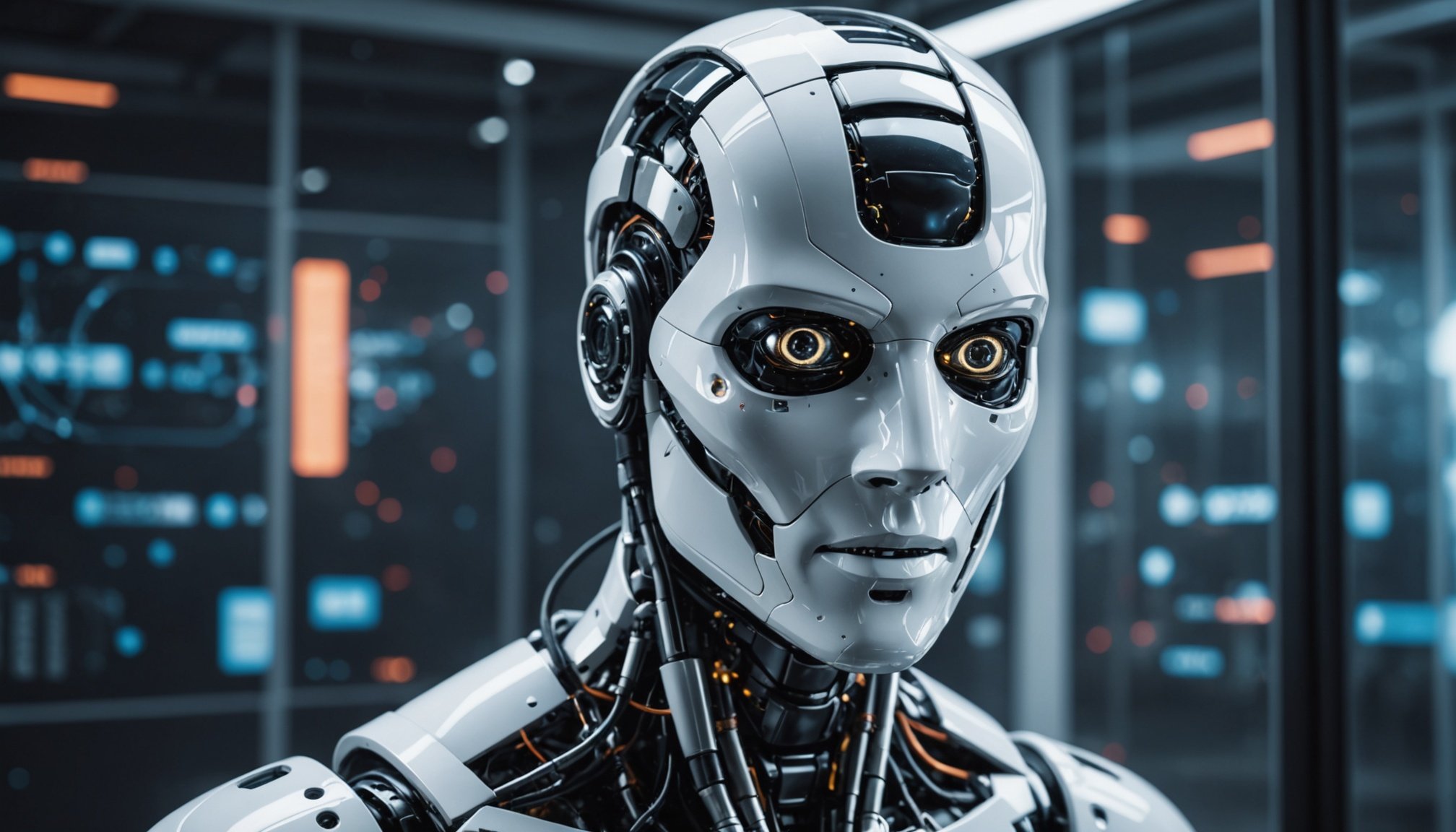Unlocking AI Innovations: Proven Tactics to Transform Recruitment Processes in the UK
As the UK labour market continues to evolve, the integration of Artificial Intelligence (AI) in recruitment processes is no longer a mere trend, but a necessity for both the public and private sectors. This article delves into the transformative impact of AI on recruitment, highlighting its benefits, challenges, and practical strategies for implementation.
The Rise of AI in Recruitment: A New Era
The advent of AI in recruitment marks a significant shift in how companies identify, evaluate, and hire talent. This technology is not just about automating mundane tasks; it’s about revolutionizing the entire hiring process to make it more efficient, fair, and data-driven.
In parallel : Enhance your video reach with ai-generated subtitles
Efficiency and Precision
AI algorithms promise to significantly reduce the time and resources invested in sifting through resumes and identifying potential candidates. For instance, tools like Elevatus and iCIMS Talent Cloud automate CV screening, ensuring that only the most qualified candidates make it to the top of the list. This streamlined process allows for more efficient decision-making, enabling recruiters to focus on strategic initiatives rather than getting bogged down in administrative tasks[2][4].
Unbiased Recruitment
One of the most compelling advantages of AI in recruitment is its ability to minimize unconscious bias in hiring decisions. By focusing on objective criteria such as skills, qualifications, and career trajectories, AI systems can highlight overlooked talent pools and promote a more inclusive hiring process. As Natalia Perkowska, Deputy Chief HR Officer at SOFTSWISS, notes, “AI revolutionizes recruitment by making the process faster, more cost-effective, and incredibly precise. It ensures that candidates are evaluated on their skills and qualifications, promoting a fairer and more inclusive hiring process”[5].
Also read : Revitalize Event Participation: The Definitive AI-Powered Blueprint for Planners in the UK
Key AI Tools and Technologies
The landscape of AI in recruitment is diverse, with various tools and technologies designed to address different aspects of the hiring process.
Automated CV Screening and Candidate Sourcing
Tools like Elevatus and HireEZ are revolutionizing candidate sourcing by automating job distribution across multiple platforms and identifying top talent quickly. For example, Elevatus simplifies recruitment by automating job distribution across 2,000+ job boards, reducing the time-to-fill by up to 30%[2].
Predictive Job Matching
Predictive analytics is another powerful tool in AI recruitment. Platforms like Elevatus and iCIMS use advanced algorithms to analyze job requirements and candidate profiles, predicting who is most likely to succeed in a role. This approach goes beyond just matching skills; it assesses the candidate’s potential and personality to ensure a seamless fit into the team[2][4].
AI-Powered Video Interview Analysis
AI-powered video analysis tools, such as EVA-SSESS by Elevatus, offer a deeper understanding of candidate potential by assessing critical attributes like leadership qualities, problem-solving abilities, and communication styles. This approach removes subjective guesswork and ensures evaluations are fair and unbiased[2].
Practical Strategies for Implementing AI in Recruitment
Implementing AI in recruitment is not just about adopting new technology; it’s about integrating it seamlessly into your existing processes.
Balancing AI and Human Judgment
One of the key strategies is to strike a balance between AI and human judgment. At SOFTSWISS, AI handles repetitive tasks such as screening CVs, while human recruiters focus on assessing cultural fit and soft skills. This hybrid approach ensures that recruitment is not just about data but about people[5].
Ensuring Transparency and Trust
Transparency is crucial when integrating AI into the hiring process. Informing candidates about the role of AI upfront fosters trust and clarity. Feedback loops, such as candidate surveys, can be used to refine and enhance the system continuously, ensuring it meets both business and applicant needs[5].
Addressing Bias and Ensuring Compliance
Properly designed AI systems can address bias by highlighting overlooked talent pools and ensuring compliance with regulations like GDPR. For example, Elevatus embeds GDPR compliance into its core, allowing recruiters to focus on finding talent without worrying about regulatory missteps[2].
The Impact of AI on Recruitment Processes
The impact of AI on recruitment processes is multifaceted, affecting various aspects of the hiring cycle.
Time Savings and Efficiency
AI significantly reduces the time spent on manual tasks such as CV screening and interview scheduling. This time savings enables recruiters to focus on more strategic and relationship-building activities. According to theHRD, “Screening CVs, scheduling interviews, and sending follow-ups – once a recruiter’s daily grind – are now managed effortlessly by intelligent algorithms”[5].
Data-Driven Decision Making
AI introduces a data-driven approach to recruitment, ensuring that hiring decisions are based on objective criteria rather than subjective impressions. This approach enhances the accuracy of candidate evaluations and reduces the risk of hiring mistakes. As seen with iCIMS Talent Cloud, AI engines trained on billions of real-world recruiting data points improve how organizations attract, engage, hire, and advance top candidates[4].
Enhancing Candidate Experience
AI also enhances the candidate experience by delivering personalized communication and keeping candidates informed at every stage of the process. Tools like iCIMS Digital Assistant answer candidate questions in real time, schedule interviews, and identify best-fit roles, making the hiring process more engaging and transparent[4].
Challenges and Considerations
While AI offers numerous benefits, there are also challenges and considerations that need to be addressed.
Ethical and Regulatory Concerns
Ensuring that AI systems comply with regulations such as GDPR is crucial. Additionally, there is a need to address ethical concerns related to bias and transparency. As AI becomes more pervasive, it is essential to have clear guidelines and oversight to ensure that these systems are fair and unbiased[2][5].
Public Trust and Acceptance
Building public trust in AI-driven recruitment processes is vital. This involves being transparent about the use of AI and ensuring that candidates understand how their data is being used. As the government and public sector begin to adopt AI in their recruitment processes, maintaining public trust will be a key factor in the long-term success of these initiatives.
Case Studies and Examples
Several companies have already seen significant benefits from integrating AI into their recruitment processes.
SOFTSWISS: A Hybrid Approach
SOFTSWISS is a prime example of how AI can be integrated into recruitment while maintaining a balance with human judgment. By automating high-volume tasks and allowing human recruiters to focus on cultural fit and soft skills, SOFTSWISS has created a recruitment process that is both efficient and fair[5].
Elevatus: Streamlining Recruitment
Elevatus, an AI-powered recruitment platform, has streamlined every step of the recruitment process for its clients. From automated CV screening to predictive job matching and AI-powered video interview analysis, Elevatus has transformed hiring into a strategic advantage, enabling companies to uncover top talent and build winning teams faster than ever[2]. and Future Outlook
The future of recruitment in the UK is undoubtedly tied to the integration of AI. As this technology continues to evolve, it is crucial for both the public and private sectors to embrace its potential while addressing the challenges and considerations that come with it.
Economic Growth and Innovation
The adoption of AI in recruitment can have a significant impact on economic growth by enhancing the efficiency and effectiveness of the hiring process. This, in turn, can lead to better talent acquisition, improved team performance, and ultimately, increased productivity.
Long-Term Benefits
In the long term, AI-driven recruitment processes can lead to a more inclusive and diverse workforce. By minimizing bias and focusing on objective criteria, AI can help organizations uncover talent that might have been overlooked through traditional hiring practices.
Practical Advice for Recruiters
For recruiters looking to integrate AI into their processes, here are some practical tips:
- Start Small: Begin by automating specific tasks such as CV screening or interview scheduling to see the immediate benefits of AI.
- Choose the Right Tools: Select AI tools that align with your recruitment strategy and ensure they are compliant with relevant regulations.
- Maintain Transparency: Inform candidates about the use of AI in the hiring process to build trust and clarity.
- Balance AI and Human Judgment: Ensure that AI handles repetitive tasks while human recruiters focus on strategic and relationship-building activities.
- Continuously Evaluate and Improve: Use feedback loops to refine and enhance the AI system, ensuring it meets both business and applicant needs.
Detailed Bullet Point List: Top 8 Ways AI is Revolutionizing Recruitment in the UK
-
Unleash the Power of AI to Source Top Talent in Record Time:
-
AI-powered sourcing tools search for talent across multiple platforms, identifying the best matches quickly.
-
Automated job distribution across 2,000+ job boards reduces time-to-fill by up to 30%[2].
-
Match the Right Talent to the Right Role with Predictive AI:
-
Predictive analytics analyzes job requirements and candidate profiles to predict who is most likely to succeed in a role.
-
Advanced algorithms identify candidates who not only have the right qualifications but also the potential and personality to fit seamlessly into the team[2].
-
Unlock Deeper Insights with AI-Powered Video Interview Analysis:
-
AI-powered video analysis assesses critical attributes such as leadership qualities, problem-solving abilities, and communication styles.
-
Data-driven insights remove subjective guesswork and ensure evaluations are fair and unbiased[2].
-
Automate Repetitive Tasks:
-
AI handles tasks such as CV screening, interview scheduling, and sending follow-ups, freeing up recruiters for more strategic activities[5].
-
Enhance Candidate Experience:
-
Personalized communication and real-time feedback keep candidates informed at every stage of the process.
-
Tools like iCIMS Digital Assistant answer candidate questions and schedule interviews, making the hiring process more engaging and transparent[4].
-
Ensure Compliance and Reduce Bias:
-
Properly designed AI systems ensure compliance with regulations like GDPR.
-
AI minimizes unconscious bias by focusing on objective criteria such as skills and qualifications[2][5].
-
Use Machine Learning for Profile Enrichment:
-
Machine learning algorithms source additional information about candidates from publicly available data across the web.
-
This approach enriches candidate profiles, providing a more comprehensive view of each candidate’s potential[4].
-
Implement Chatbots for Real-Time Interaction:
-
Chatbots simplify scheduling and provide real-time answers to candidate questions.
-
Tools like HireVue’s AI recruiting assistant bot support mobile devices and smartwatches via text messaging and WhatsApp[4].
Comprehensive Table: Comparison of AI Recruitment Tools
| Tool | Key Features | Benefits | Challenges |
|---|---|---|---|
| Elevatus | Automated CV screening, predictive job matching, AI-powered video interview analysis | Streamlines recruitment, reduces time-to-fill, enhances candidate experience | Ensuring transparency and trust, addressing bias |
| iCIMS Talent Cloud | Native purpose-built AI, applicant screening and ranking, interview scheduling, personalized assessments | Improves efficiency, accelerates hiring velocity, reduces cost of hiring | Integrating with existing systems, ensuring compliance |
| HireEZ | Candidate sourcing, profile enrichment, deep integration with ATS | Surfaces qualified candidates, transforms outdated profiles into actionable talent data | Managing large datasets, ensuring data accuracy |
| HireVue | AI recruiting assistant bot, static algorithms for bias reduction, chat-based job matching | Reduces hiring bias, provides repeatable output, supports mobile devices | Limited flexibility in algorithm updates, requires expert oversight |
| Dayforce | AI-powered talent acquisition, automated job requisitions, prescreening questions, AI-assisted candidate matching | Automates manual tasks, streamlines recruitment, enhances new hire success | Integrating with existing HCM suites, ensuring user adoption |
Quotes from Industry Experts
-
“AI revolutionizes recruitment by making the process faster, more cost-effective, and incredibly precise. It ensures that candidates are evaluated on their skills and qualifications, promoting a fairer and more inclusive hiring process.” – Natalia Perkowska, Deputy Chief HR Officer at SOFTSWISS[5].
-
“AI is not just a tool; it’s a superpower for recruiters. It transforms hiring into a strategic advantage, enabling companies to uncover top talent and build winning teams faster than ever.” – Elevatus[2].
-
“The true magic of AI lies not just in its efficiency, but in its ability to foster diversity and inclusion. It allows every applicant to be seen for their true potential, leveling the playing field and promoting a more equitable hiring process.” – theHRD[5].
In conclusion, the integration of AI in recruitment processes is a game-changer for both the public and private sectors in the UK. By embracing this technology, organizations can enhance efficiency, foster inclusivity, and make data-driven decisions. As we move forward, it is crucial to address the challenges and ensure that AI supports, rather than replaces, the human touch in recruitment.








